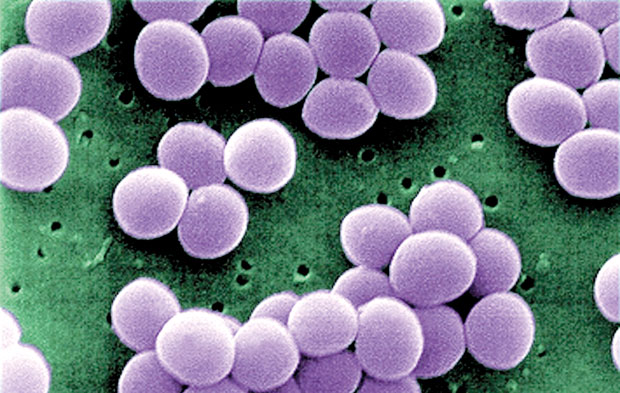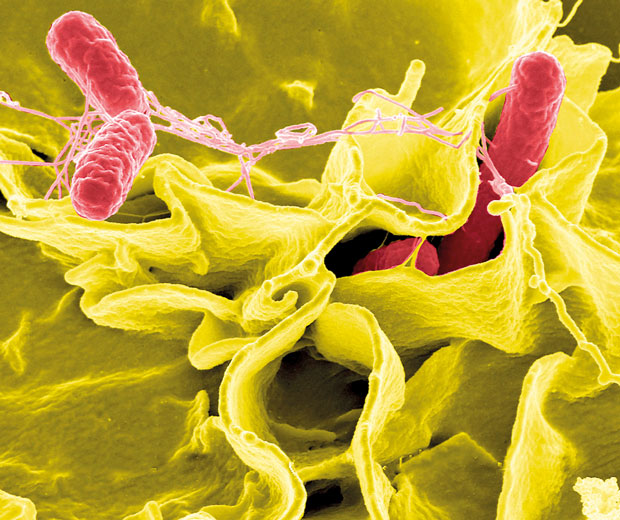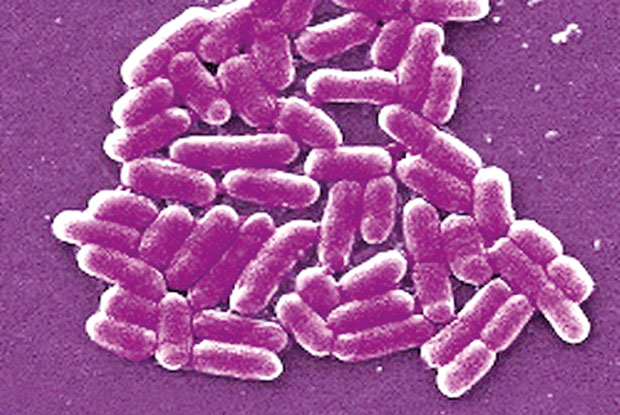14 Aug 2017 - {{hitsCtrl.values.hits}}

 Food poisoning is an illness caused by eating contaminated food. It’s usually very trivial and just about everybody has experienced it, one way or another. It’s also a problem that can be easily avoided. Food poisoning is caused when the food item is contaminated with bacteria (such as Salmonella) or a virus (such as norovirus). It can also be contaminated with heavy metals such as mercury or copper or even chemicals such as pesticides. The symptoms that are experienced during food poisoning are usually vomiting, abdominal pain/cramps and diarrhoea. Dr. Enoka Corea, Senior Lecturer, Department of Microbiology, Faculty of Medicine, Colombo, explained how different types of bacteria can contaminate our food and how this can be prevented in the domestic setting.
Food poisoning is an illness caused by eating contaminated food. It’s usually very trivial and just about everybody has experienced it, one way or another. It’s also a problem that can be easily avoided. Food poisoning is caused when the food item is contaminated with bacteria (such as Salmonella) or a virus (such as norovirus). It can also be contaminated with heavy metals such as mercury or copper or even chemicals such as pesticides. The symptoms that are experienced during food poisoning are usually vomiting, abdominal pain/cramps and diarrhoea. Dr. Enoka Corea, Senior Lecturer, Department of Microbiology, Faculty of Medicine, Colombo, explained how different types of bacteria can contaminate our food and how this can be prevented in the domestic setting.
Contamination by bacteria
Starting off with the different types of bacteria that can cause food poisoning, Dr. Corea said,“Food poisoning can occur in many different ways. There are certain bacteria that can make toxins (poisons) in the food itself, so that when you eat the food the toxin or poison is already present and you start getting the symptoms such as vomiting and diarrhoea within 2-6 hours after the meal. Bacteria such as Bacillus cereus and Staphylococcus aureus have the property of producing toxins while multiplying in food. Staphylococcus aureus can multiply in salty foods like ham, cheese and mayonnaise and cause this type of food poisoning whereas Bacillus cereus is seen more commonly in rice” .
“There are other bacteria that contaminates food and multiplies only when they enter the intestine, after you eat the food. So it takes a while, maybe 12 to 24 hours, before you get the food poisoning symptoms. Bacteria like Salmonella, which are commonly found in eggs and chicken, are common causes of food poisoning which is why we advise people to boil eggs and cook chicken thoroughly,” She continued.

Moving on to more life threatening bacteria she said,“E. coli and Campylobacter are other bacteria that can contaminate food. These can be found in meats when they aren’t cooked properly. For example, meat in a hamburger or barbeque meat. E. coli has become a problem because there is a particular strain called enterohaemorrhagic E. coli O157:H7 which can actually cause complications that can lead to death. Children die from this, even in the richer parts of the world, because this strain can result in kidney failure and subsequent death. This is a very serious type of food poisoning. Most of the other food poisonings are very trivial”.
“Food poisoning doesn’t always lead to diarrhoea. If your food is contaminated by botulinum toxin you will have constipation and paralysis rather than diarrhoea and may even die of respiratory failure. Botulism is caused by a bacterium called Clostridium botulinum which is found in the environment. Spores of this bacterium can contaminate your food and then the bacteria can multiply and produce the toxin in your food, especially in badly tinned food. This is one of the most poisonous toxins in the world because tiny amounts (nanograms) can kill you,” She added.

From farm to fork
Dr. Corea further said that proper preparation of the food is important when preventing food poisoning, starting from the farm. “To ensure that the food doesn’t get contaminated you have to practice very good farming and animal husbandry. The produce mustn’t be contaminated with animal faeces and human sewage shouldn’t be used as manure. Even in slaughter houses hygiene needs to be maintained. Then, of course, storing and transport of the meat or vegetables must be done in a proper manner using the correct temperature,”Dr. Corea added.
She further explained the measures that can be taken at home. “At home, there are some very important things we need to practice in the kitchen. You must always wash your hands and your utensils properly in clean water. You must separate raw food and cooked food. You should also have separate utensils, such as knives, for raw food and cooked food. You must cook your food at the proper temperature for the correct period and either eat it hot or cool it fast and store it in the fridge. You must not keep warm food outside for long periods of time. If you are reusing your food from the fridge you must heat it well before eating. Eggs shouldn’t be eaten raw or even half boiled. Never drink raw milk, the milk should always be boiled or pasteurized.Those who are handling the food must maintain good personal hygiene and handle the food properly and carefully. People must never try home canning. If you are going on a holiday to another country you must make sure that you have water or drinks that come in a properly sealed bottle or only drink piping hot drinks. High risk foods are chicken,eggs, barbeque meat, mince meat, shellfish etc.” she said.
Treatment
Dr. Corea stated that generally there is no specific treatment given for food poisoning. “What you must do is replace the fluids you are losing through vomiting and diarrhoea and focus on rehydrating the person. A patient maybe given an antiemetic for the vomiting. You must never give drugs to stop the diarrhoea, because diarrhoea is the protective mechanism and flushes out the food poisoning from your system. Only if the food poisoning leads to blood poisoning-which is very rare-that you will have to take antibiotics. But in general, you don’t need to take antibiotics. Most food poisoning is self-limiting and you will feel better after a few hours,” she concluded.
23 Dec 2024 2 hours ago
23 Dec 2024 3 hours ago
23 Dec 2024 6 hours ago
23 Dec 2024 7 hours ago